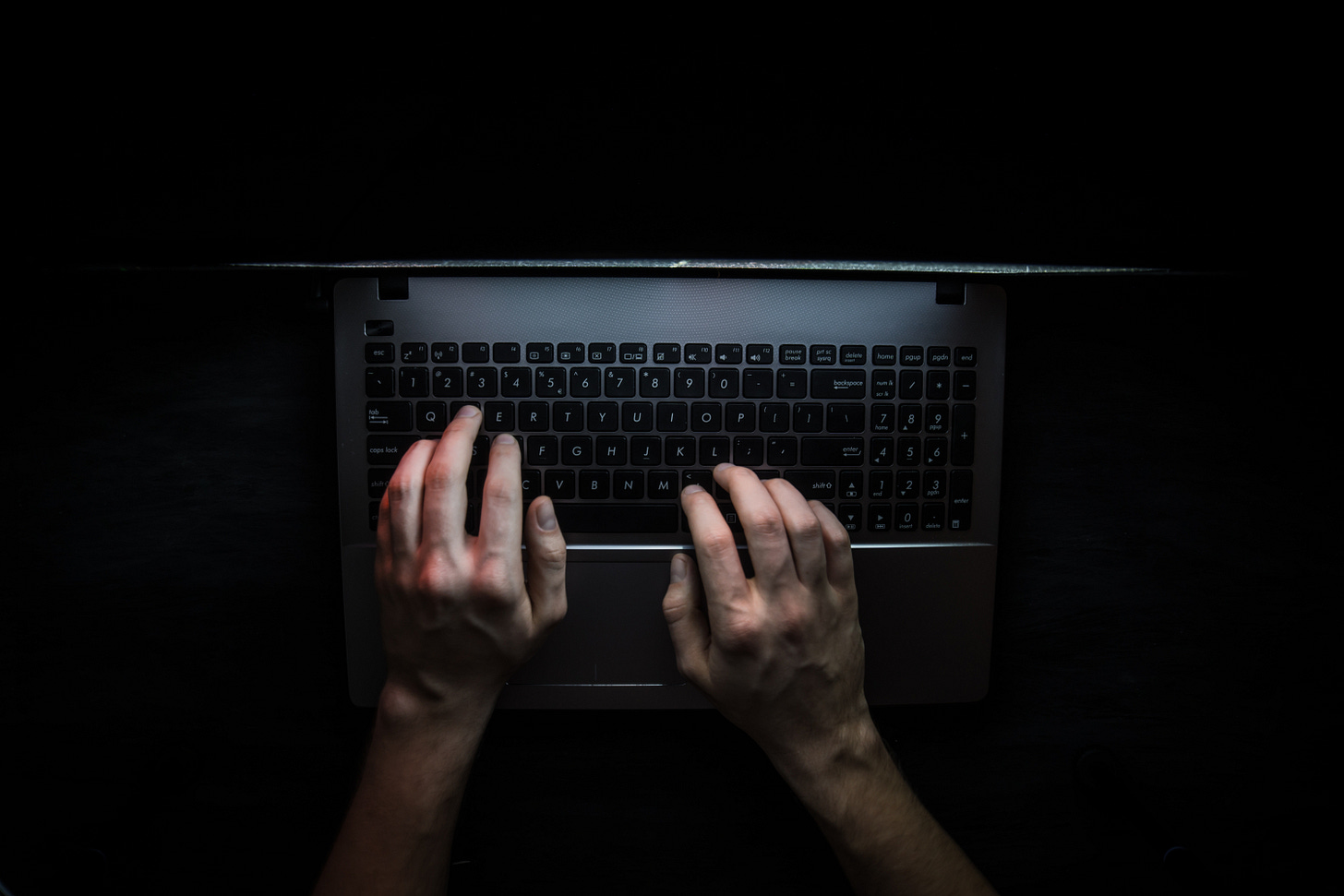How age verification laws threaten naturism
As governments tighten regulations on online content, naturist websites may become unintended casualties of sweeping age verification laws
It started with pornography. The justification was simple: children should not have unrestricted access to explicit content online. In 2022, Louisiana became the first state to enact an age verification law for adult websites, requiring visitors to upload government-issued IDs before accessing content deemed harmful to minors.1 The law quickly inspired copycat legislation, and by 2024, over a dozen states had passed similar measures, with Texas, Utah, and Arkansas among the most aggressive enforcers.2 State legislators framed these laws as common-sense protections for children, forcing adult websites to implement identity checks or risk being blocked entirely. At first glance, the idea seemed reasonable—who could argue against protecting kids?
But the mission was never truly about protecting kids. Within just two years, age verification laws have already begun creeping beyond pornography and into unexpected territory: skincare products, dating apps, and dietary supplements. By early 2025, California introduced Assembly Bill 728, requiring online ID verification for the purchase of skincare products containing certain active ingredients, and New York proposed legislation mandating age verification and location tracking for dating app users.3 What began as a narrowly framed effort to regulate access to adult content has rapidly evolved into a growing system of digital identity checks across the internet; expanded government-mandated surveillance under the guise of public safety.
As concerning as it all is in terms of privacy, it is also remarkable for how it echoes past moral crusades against obscenity, where the battle against pornography has historically been used as a pretext for broader crackdowns on liberties and free expression—including nonsexual depictions of the human body. As this legal framework expands, a troubling question emerges: could naturism—a philosophy of body positivity and nonsexual nudity—become collateral damage?
The slippery slope
The core problem with age verification laws is their vague and overbroad definitions of what constitutes harmful content. Many of these laws define “explicit material” in ways that could easily encompass nonsexual nudity. Tennessee’s law, for example, explicitly includes depictions of any nude body part, including nipples, pubic hair, and genitals, regardless of context.4
For naturist websites that feature photos of nude beach gatherings or nudist events, the leap from porn to naturism, in the eyes of the Puritan public, is hardly a hop. If a state decides that this type of content is “harmful to minors,” the website must comply with strict age verification measures—requiring visitors to upload a government-issued ID, undergo a facial recognition scan, or submit credit card information before accessing the content.
This isn’t just a hypothetical scenario. Pornhub has already responded to this wave of age verification laws in multiple states by blocking access altogether, deeming compliance too risky. Naturist websites, many of which are run by small organizations or individuals, may have no choice but to follow suit, effectively shutting themselves off from naturists in heavily regulated regions.
The unintended consequences for naturist websites
The naturist movement has long fought against the conflation of nudity with obscenity. Age verification laws threaten to undo decades of progress by reinforcing the notion that any depiction of the human body must be restricted.
For naturist organizations, the burdens of compliance could be devastating. Most naturist websites operate on minimal budgets, run by small organizations or individuals with no means to implement expensive age-verification technology. The costs of securing user data and maintaining compliance could be enough to drive some sites offline entirely. Even if they comply, users may hesitate to engage with naturist content if doing so requires submitting personal data to third-party verification companies.
Beyond access issues, there’s a deeper, more insidious consequence. If naturist websites are pushed into the same regulatory category as pornography, what does that say about naturism’s ability to market itself to families? For over a century, naturism has positioned itself as a wholesome, family-friendly way of life—a philosophy that encourages body positivity, respect for nature, and a rejection of shame-based attitudes toward the human form. Naturist resorts and organizations have long argued that children raised in a naturist environment develop healthier attitudes about their bodies, free from the toxic messaging of a hypersexualized culture. But if websites promoting this way of life are legally forced to hide behind age restrictions, the entire framing of naturism as family-friendly begins to erode.
This is happening in a time when even talking about family naturism has become increasingly taboo. The general culture is so steeped in moral panic and hysteria that merely suggesting that children can safely participate in naturism is met with outrage. Naturist organizations already struggle to counteract these negative perceptions—what happens when the law itself starts reinforcing them?
Age verification laws claim to protect children from harmful content, but they may also be preventing people from accessing alternative, body-positive perspectives that could be beneficial to their development. If naturism becomes another casualty of this expanding crackdown, it won’t just affect websites—it will affect the very identity of the movement, making it even harder to present naturism as a viable, mainstream lifestyle. The fear, then, is not just about compliance or access, but about a cultural shift—one in which the simple, natural act of nonsexual nudity is pushed further and further into the margins, until it is seen as something unfit for public discussion altogether.
The social media dilemma
For naturist organizations and businesses, social media has long been a minefield. Platforms like Meta, Instagram, and TikTok have strict—often inconsistently enforced—policies on nudity, making it difficult for naturist groups to share even the most benign, educational content. It is not remotely uncommon for a resort promoting family-friendly naturism might wake up to find its account permanently banned.
The effect on businesses is real. The ability to operate on social media is not just about visibility—it’s about survival in an increasingly digital world. The struggle to exist on these platforms is a constant battle against censorship, shadowbanning, and account suspensions that can wipe out years of audience-building in an instant. This ongoing issue was starkly highlighted recently when the International Naturist Federation (INF-FNI) led a coalition of over thirty national federations in issuing an open letter to Meta, challenging the censorship of non-sexual nudity and advocating for fairer content moderation policies.
Age verification laws threaten to make this already precarious situation worse. If platforms are required to ensure minors cannot access “harmful” content, they may take a blanket approach, tightening restrictions on any nudity-related content, regardless of context. Rather than implementing nuanced age-gating systems, it is far more likely that platforms will default to banning even more naturist content outright to minimize legal risk. For businesses already struggling to navigate these platforms, the barriers will only increase.
A digital future in flux
Where does this end?
The rapid expansion of age verification laws raises bigger questions about the future of online freedom. If nude art, body positivity content, and naturist advocacy become subject to the same scrutiny as pornography, what other forms of expression could be next?
Legal battles are already underway. The Free Speech Coalition and the ACLU are challenging Texas’s age verification law before the U.S. Supreme Court, arguing that it places unconstitutional restrictions on online speech. Privacy advocates warn that we are heading toward a world where anonymous browsing is no longer possible, as more websites require proof of identity to access even basic information.
For naturists, the stakes are particularly high. If states continue down this path, the online spaces that have allowed the movement to thrive could become harder to find, locked behind digital barriers that few are willing to cross.
Age verification laws claim to protect children, but in doing so, they may reshape the internet in ways we’re only beginning to understand. The question now is: how far will we let this go before we realize what we’ve lost? 🪐
More reading:
Wilson, S. (2023, January 2). New Louisiana laws target online pornography, delinquent taxpayers. WVUE Fox 8 Live. https://www.fox8live.com/2023/01/03/new-louisiana-laws-target-online-pornography-delinquent-taxpayers/
Mithani, J. (2024, January 29). The 19th Explains: Why some states are requiring ID to watch porn online. The 19th. https://19thnews.org/2024/01/states-age-verification-adult-content-online/
Fuentes, Z. (2025, February 19). California bill introduced in effort to ban sale of anti-aging products to shoppers under 18. ABC7 KGO-TV. https://abc7.com/amp/post/california-bill-introduced-ban-anti-aging-products-kids-18/15931458/
Cole, S. (2025, February 5). Senator tries bringing anti-porn age verification law to New York. 404 Media. https://www.404media.co/senator-tries-bringing-anti-porn-age-verification-law-to-new-york/
Mattise, J. (2025, January 14). Court lets Tennessee porn site age verification law take effect as Texas law goes to Supreme Court. Associated Press. https://apnews.com/article/tennessee-porn-age-verification-lawsuit-ae6a224a2f9ff2f05f37121f38bf9c94












Deceit is immoral, not the human body. Textile washing (read: textile version of white washing) is a rampant problem. We are humans, not outfits, not uniforms.
Society might become less hyper sexualized were we to stop hiding it away and deceiving ourselves of our inherent biology. Using blanket vagueries as "protect" children from sex implies that sex is inherently malign, harmful, etc negatives. Children wouldn't exist without the sex that conceived them, so by extension of alluding sex as negative, we condemn children to have an inherency of being just as malign.
The toxicity of the concept of inheriting original sin, anyone?
Without sex, we do not have bodies to be positive of.
The harm that is being enacted onto our youths by secreting away sex and the human body is immense, resulting in body negativity and, due to sexual suppression, hyper sexualization.
Make no mistake, I'm not condoning pedos. I'm a survivor from childhood sa, so.
I'm saying if young adults' emerging sexuality is unaccepted by society, stigmatized, where if they engage in sexual activity it is in secret or in rebellion, this endangers them, to disease, to pedos, to dangerous sexual experimentation (like having an object stuck in an oriface, or otherwise damage genitalia) especially when combined with our nationally defunct sex education. We can scare them all we want, make sex into a Boogeyman, but in the end it's in their very cells, and running from it is futile and counterproductive to safety. Teaching safe methods of managing ones own sexual experience is paramount, and ensuring that everyone can feel comfortable to talk about it is necessary for healthy society.
...But instead we live in a scary world of textile authoritarianism, sexual stigmata, and body negativity....
Stop Forcing A Family Naturist Organisations Using Age Verification On It's Websites Now